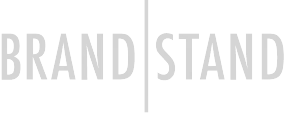In the escalating trade tensions between the United States and China, tariffs have become a key battleground. The US government’s imposition of tariffs on Chinese goods was intended to curb trade imbalances and pressure China on issues such as intellectual property theft and unfair trade practices. However, a growing number of US companies are exploiting a loophole that bypasses these tariffs, undermining both the spirit of the regulations and the businesses that adhere to them.
The tactic? Shipping goods manufactured in China to Hong Kong and declaring Hong Kong as the country of origin.

Exploiting a Loophold
Hong Kong, a Special Administrative Region of China, operates under a unique "one country, two systems" policy, giving it a separate customs territory distinct from mainland China. This distinction is being exploited by some companies to falsely label products originating in mainland China as “Made in Hong Kong.” By doing so, they sidestep the significant tariffs applied to goods produced in China, gaining an unfair cost advantage in the US market.
While the practice violates the spirit of US trade policy, enforcement challenges persist. Customs inspections are often limited, and companies that falsely declare their goods’ origin face minimal risk of detection. This loophole has created an uneven playing field, penalizing honest businesses that comply with the rules.
Impact on Honest Businesses
For companies that play by the rules and transparently report the country of origin, the financial strain is immense. These businesses absorb higher costs due to tariffs, which they must either pass on to consumers or offset by squeezing already-thin profit margins. Meanwhile, competitors exploiting the Hong Kong loophole flood the market with cheaper goods, eroding the market share of compliant companies.
The disparity is particularly glaring in industries heavily reliant on Chinese manufacturing, such as electronics, textiles, and consumer goods. Honest businesses face mounting frustration as they grapple with the dual challenge of higher costs and unfair competition.
Why the Silence?
Despite the widespread nature of this practice, the issue has received little public attention. The complexity of global supply chains and the nuanced relationship between Hong Kong and China make it a challenging issue to address. Moreover, enforcement agencies are often under-resourced and struggle to thoroughly verify the origin of goods.
The lack of transparency and oversight allows dishonest actors to thrive, while honest businesses are left to bear the brunt of an uneven system.
What Needs to Happen
The time has come for policymakers to address the Hong Kong loophole with urgency. Potential actions include:
-
Strengthening Customs Enforcement: Increase resources and training for customs officials to scrutinize goods labeled as originating in Hong Kong more effectively.
-
Implementing Transparent Supply Chain Tracking: Mandate more robust documentation requirements, such as blockchain-based tracking, to verify the true origin of goods.
-
Imposing Penalties for False Reporting: Enforce stricter penalties, including significant fines and trade restrictions, for companies found to be misrepresenting the origin of their products.
-
Raising Awareness: Advocacy groups and industry leaders must bring this issue to the forefront, ensuring that policymakers, businesses, and consumers understand the scope of the problem.
A Call for Fairness
The exploitation of the Hong Kong loophole undermines not only the integrity of US trade policy but also the trust in the global trading system. Businesses that adhere to the rules deserve a level playing field, free from the undercutting practices of those exploiting gaps in enforcement.
This is not just a regulatory issue—it’s a matter of fairness and economic integrity. By closing this loophole and holding violators accountable, the US can send a clear message: honesty and compliance will be rewarded, not punished.
The time to act is now. This hidden problem is not just hurting businesses—it’s undermining trust in the very principles of fair trade. The word must get out, and this loophole must be closed.
About the Publisher
This article was published by Brandstand Products, a company committed to transparency and integrity in global trade. With years of experience in the industry, Brandstand advocates for fair practices and policies that create a level playing field for all businesses.
References
- United States Trade Representative (USTR), "Tariff Information," https://ustr.gov/issue-areas/enforcement/tariffs.
- US Customs and Border Protection (CBP), "Origin Marking Rules," https://www.cbp.gov/trade/rulings.
- Brookings Institution, "Analysis of Tariffs and Economic Impact," https://www.brookings.edu/.
- Congressional Research Service (CRS), "Hong Kong’s Special Status in U.S. Trade," https://crsreports.congress.gov/.
- National Bureau of Economic Research (NBER), "The Impact of Tariffs on US Prices and Welfare," https://www.nber.org/.
- US Government Accountability Office (GAO), "Reports on Trade Compliance and Enforcement," https://www.gao.gov/.



